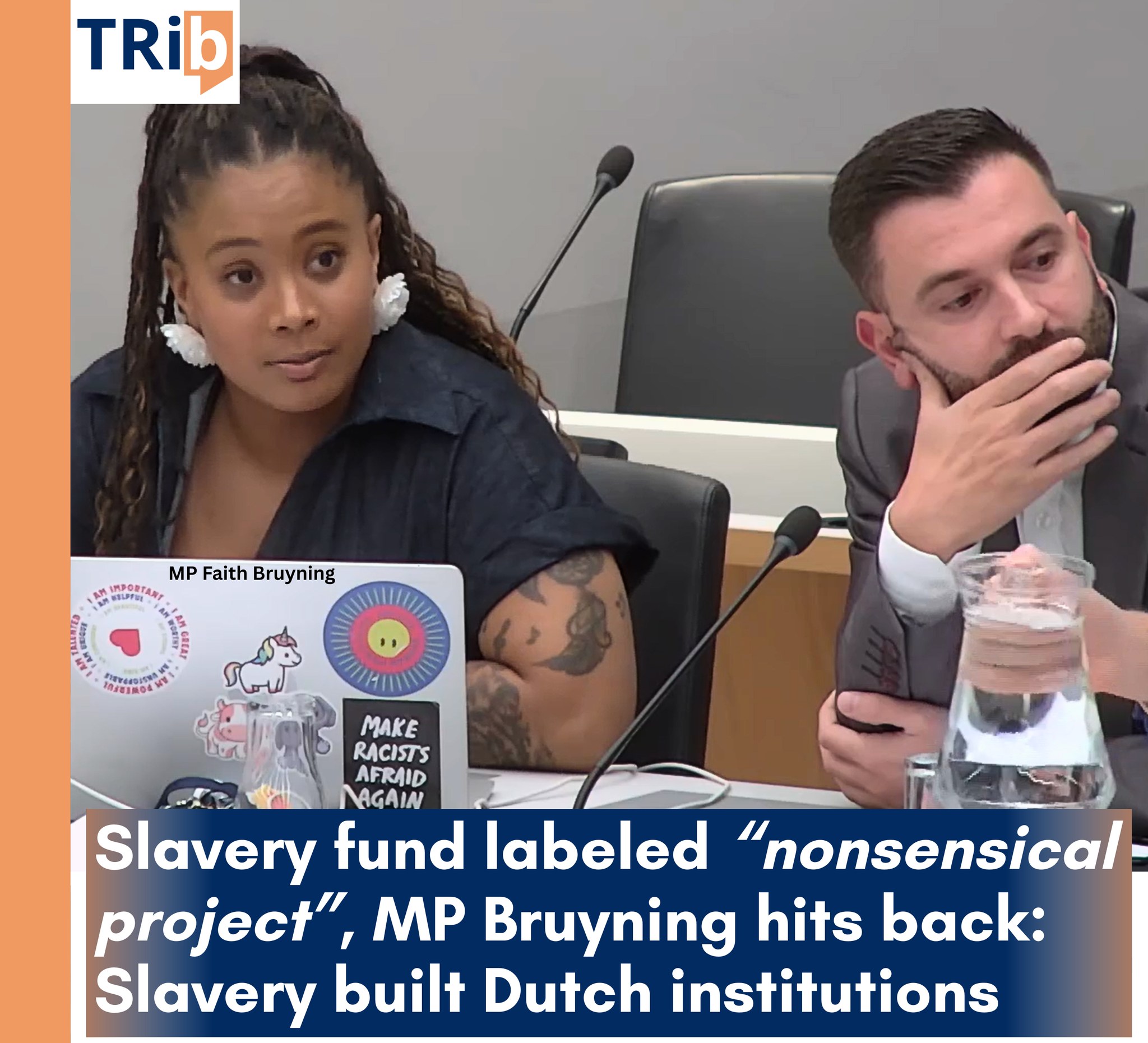Slavery fund labeled “nonsensical project”, MP Bruyning hits back: Slavery built Dutch institutions

THE HAGUE--From mid-August, organizations in the Caribbean and European parts of the Kingdom of the Netherlands, as well as Suriname, will be eligible to apply for funding from a newly established 100-million-euro slavery fund. The initiative, announced by Minister of the Interior and Kingdom Relations Judith Uitermark, aims to support projects focused on awareness, healing, and confronting the lasting consequences of slavery, referred to as the "pass-through effect."
Eligibility requirements for the subsidy will be published on July 1st, the date marking the official abolition of slavery in the Kingdom in 1863. An additional 100 million euros will be available for “policy impulses”, initiatives proposed by government organizations. The Caribbean territories are expected to present their "action list" on July 1 as well.
The announcement sparked a heated parliamentary debate on Wednesday, with strong and divergent views expressed by Members of Parliament.
MP Michiel Van Nispen (SP) emphasized that discussing the topic, even when uncomfortable, is essential. "Slavery was and is a crime against humanity. For centuries, a wealthy class enriched itself by exploiting, imprisoning, and abusing people. The Dutch state not only allowed this, it facilitated it," he said. Van Nispen stressed that the consequences of slavery are still felt today through persistent racism and generational disadvantages. He called for greater investment in education and awareness, arguing that schools often ignore the colonial past. “We learn about the Dutch Golden Age, but not the plantations. That’s a missed opportunity.”
Van Nispen praised recent initiatives like the national apology and the founding of a slavery museum, but urged for deeper societal integration of awareness and recognition efforts. “The past cannot be changed, but we can choose how we deal with it today,” he concluded.
MP Peter van Haasen (PVV) took a starkly different stance, criticizing what he termed a “subsidy-driven victim industry.” Quoting his party’s 2023 platform, he dismissed government apologies as performative and rejected funding for what he described as “self-appointed representatives” and “bureaucratic self-glorification.” Van Haasen claimed that the slavery fund has become a “money machine” rather than a path to healing. “This is not restoration, it’s the continuation of dependent behavior,” he said, arguing instead for “historical truth and national pride.”
Join Our Community Today
Subscribe to our mailing list to be the first to receive
breaking news, updates, and more.





